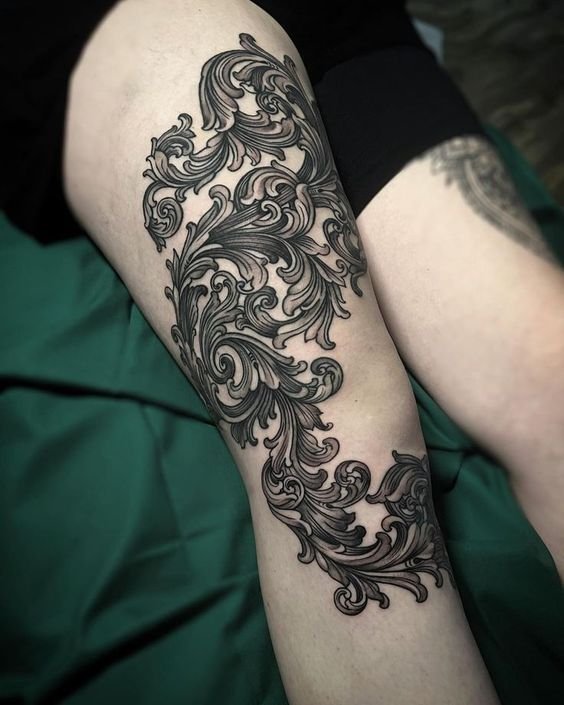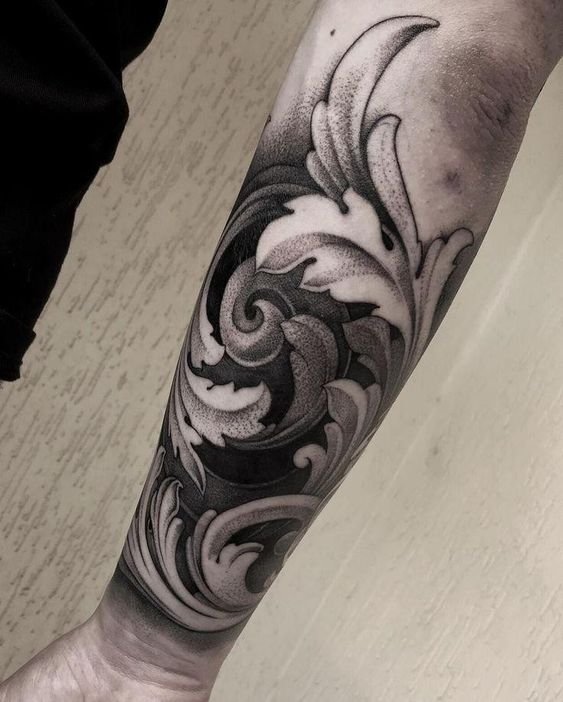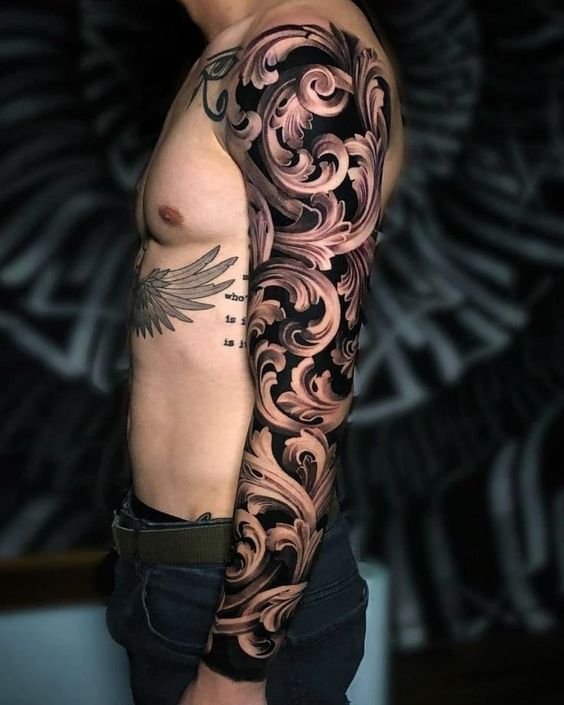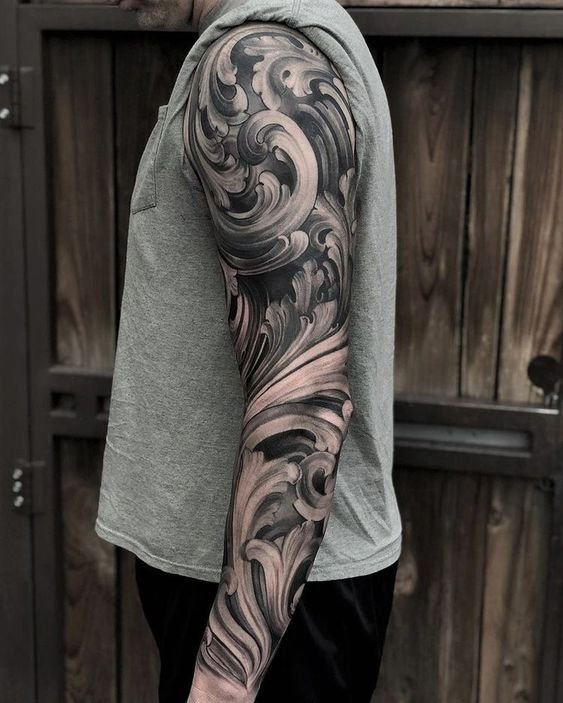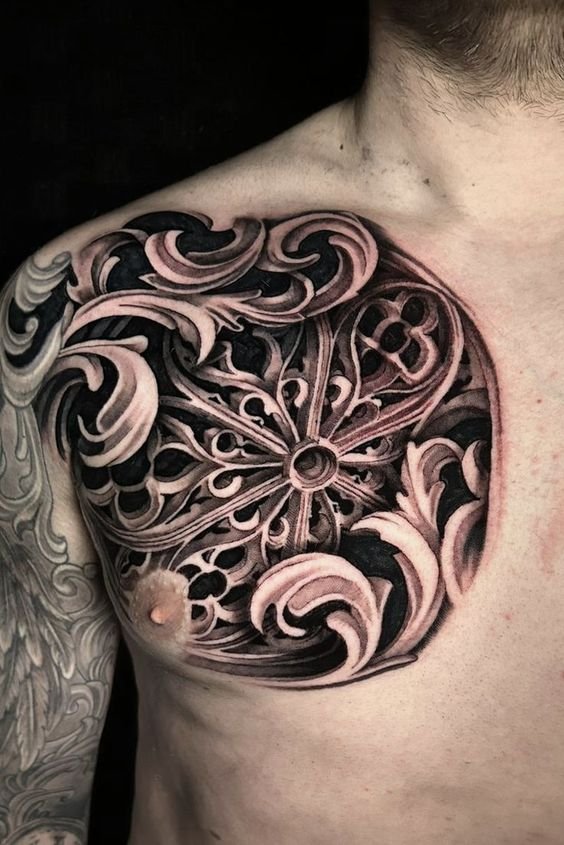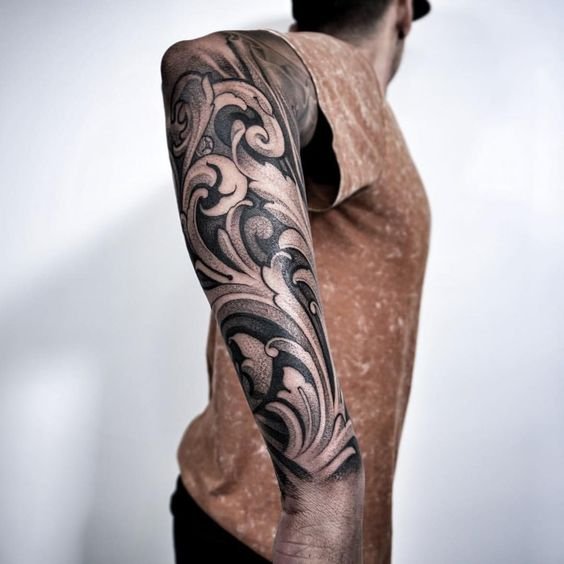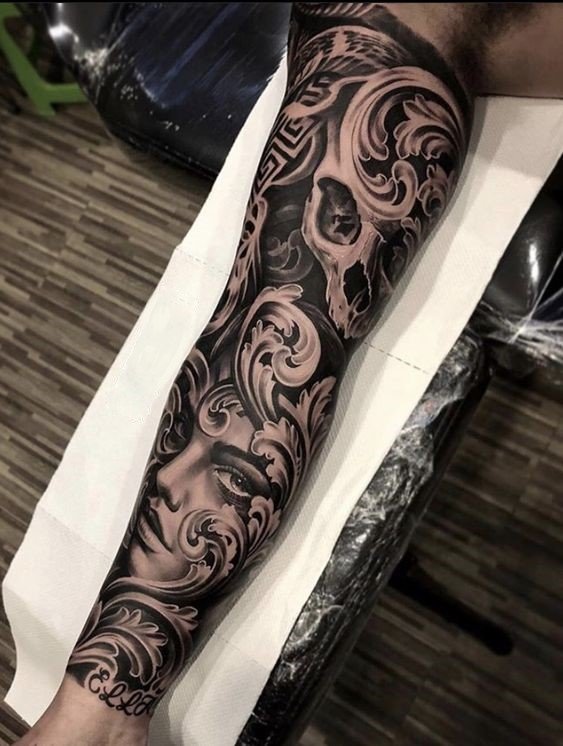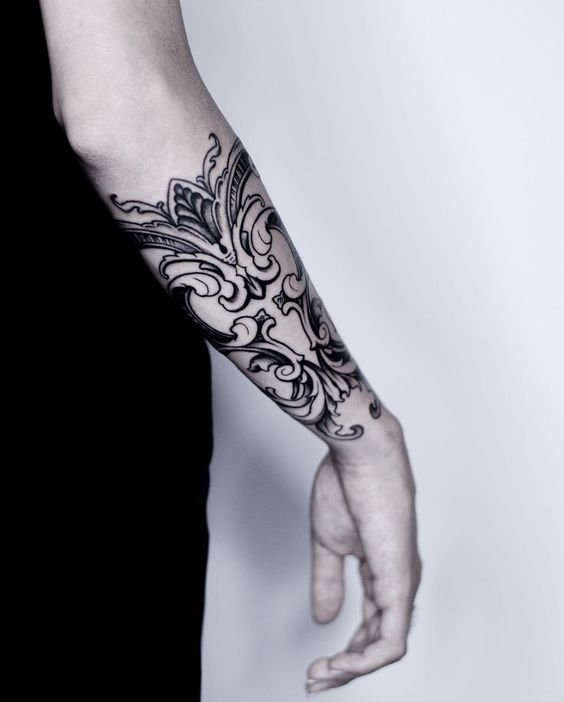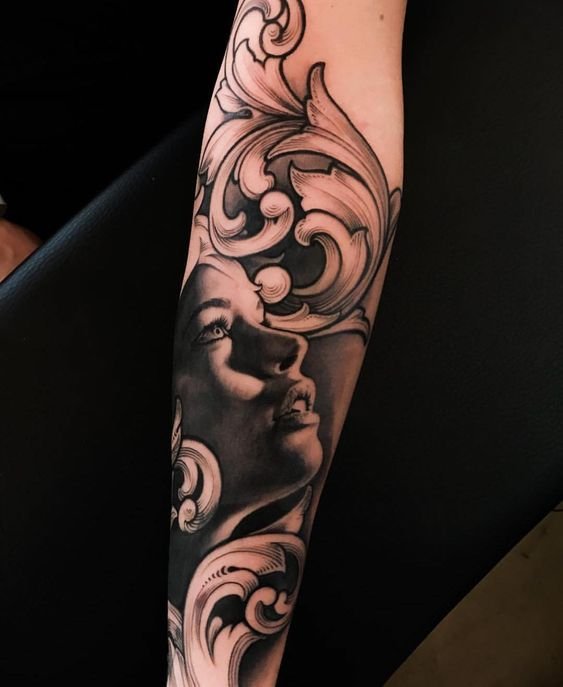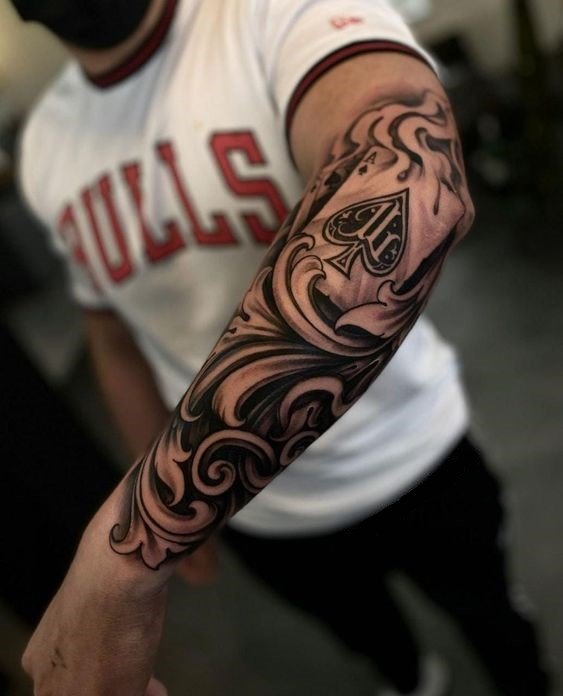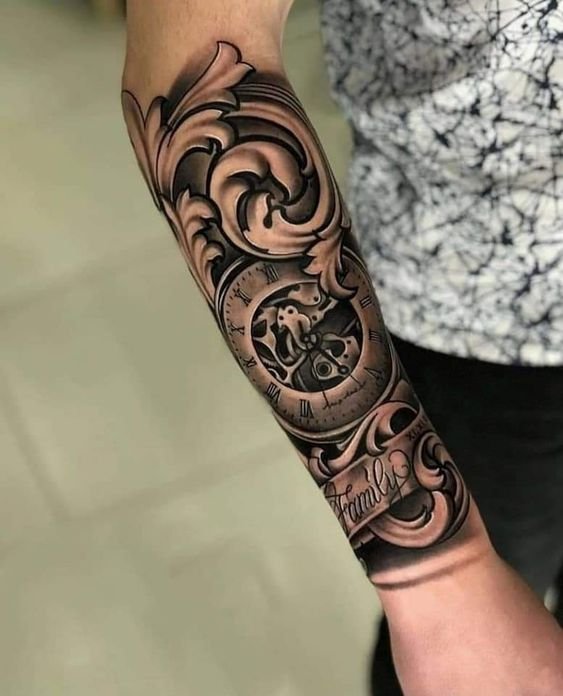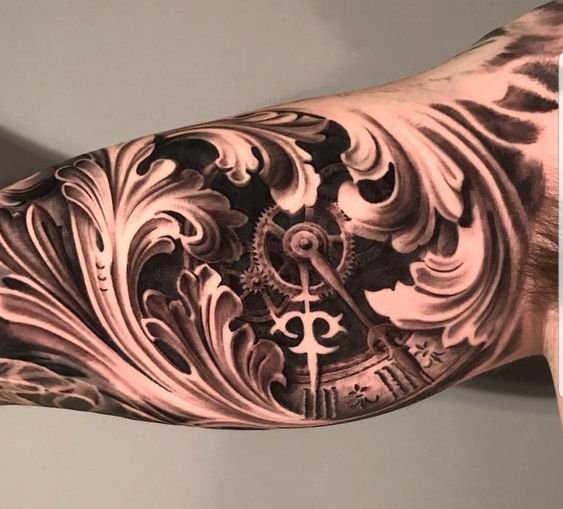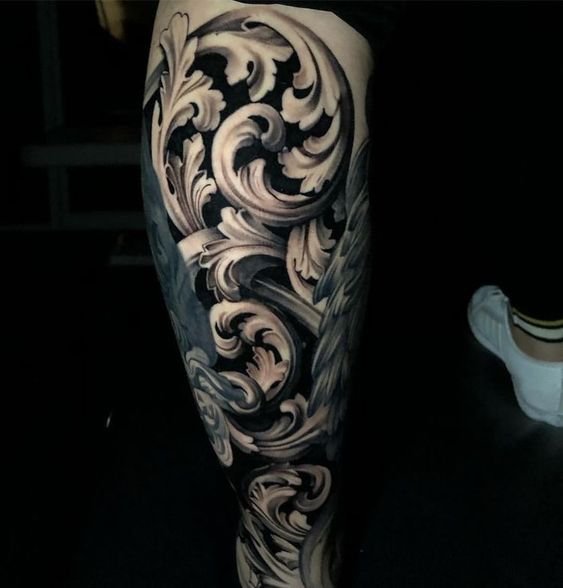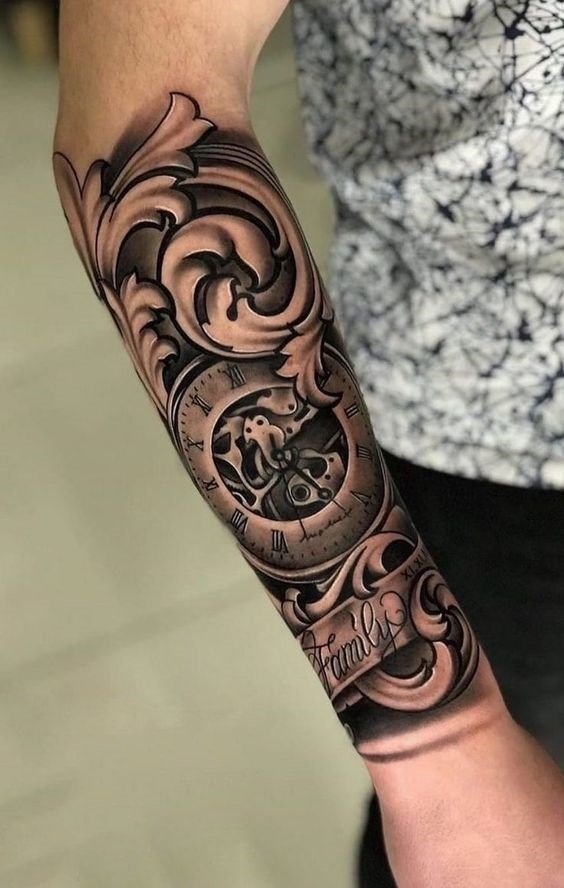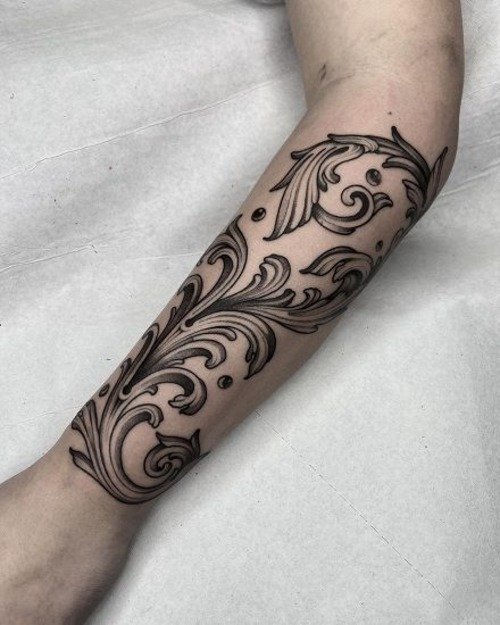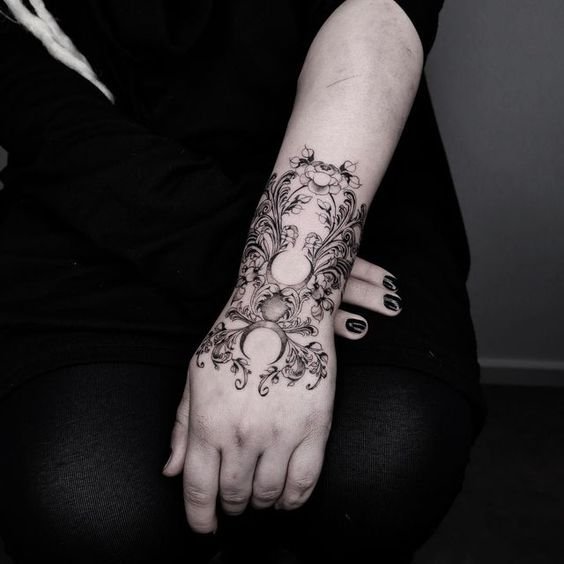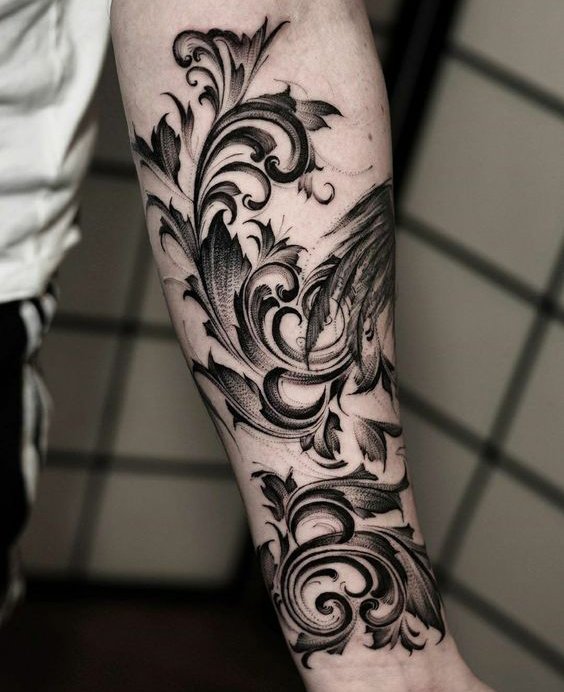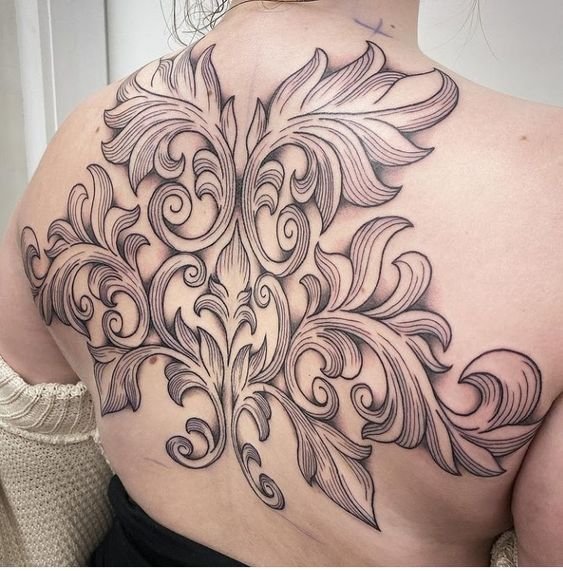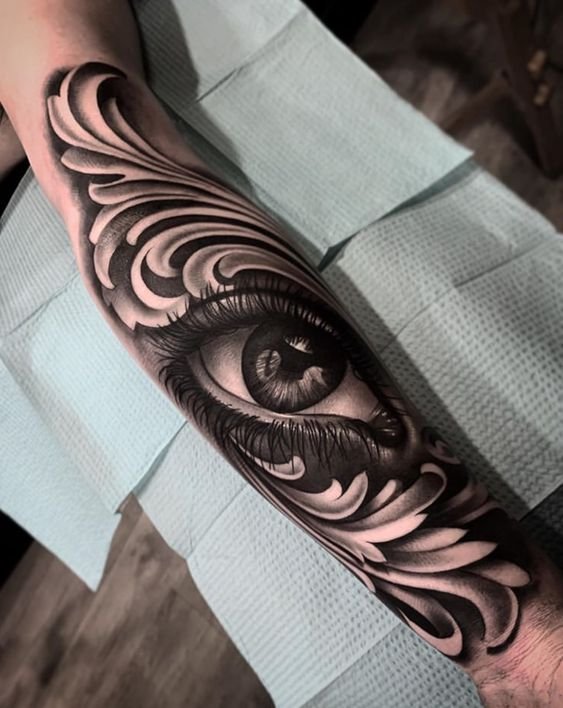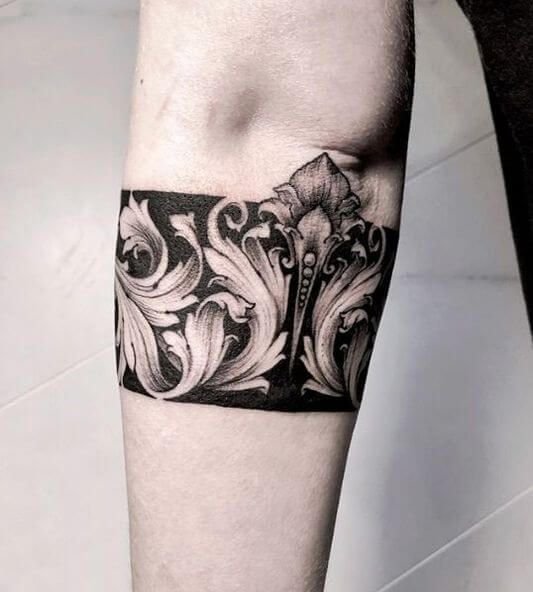Baroque Style Tattoos:
Luxury, Aesthetics,
and Symbolism
The art of tattooing is constantly evolving, drawing inspiration from various cultural epochs and styles.
One of the most impressive and luxurious directions in the world of tattoos is the Baroque style. This style, which originated in Europe in the late 16th century, is known for its opulence, drama, and attention to detail. In this article, we will delve into the features of the Baroque style in tattoos, explore what makes it unique, and how its elements can be interpreted in modern tattoo art.
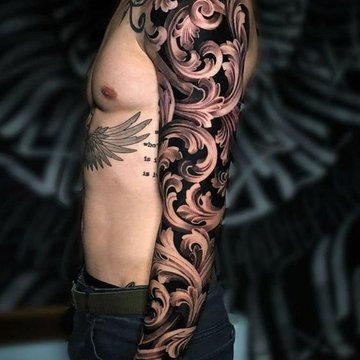
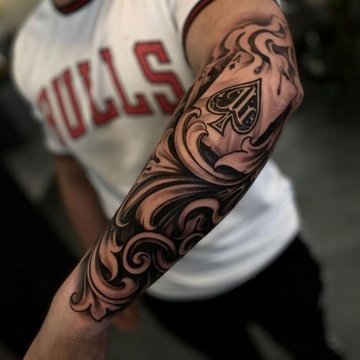
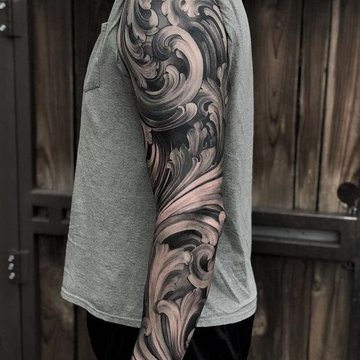
Historical Context
and Characteristic Features
of the Style
Baroque as an artistic style originated in Italy and quickly spread throughout Europe, leaving a significant mark on architecture, painting, and sculpture.
The main features of Baroque include dynamism, contrast, emotional intensity, and a wealth of decorative elements.
In tattoos, these traits are manifested through the use of intricate ornaments, curved lines, and an abundance of details. Baroque aims to create visual splendor, with every detail in a Baroque-style tattoo meticulously crafted to create an effect of depth and luxury.
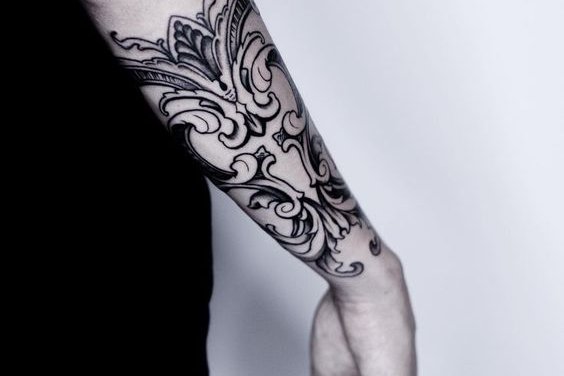
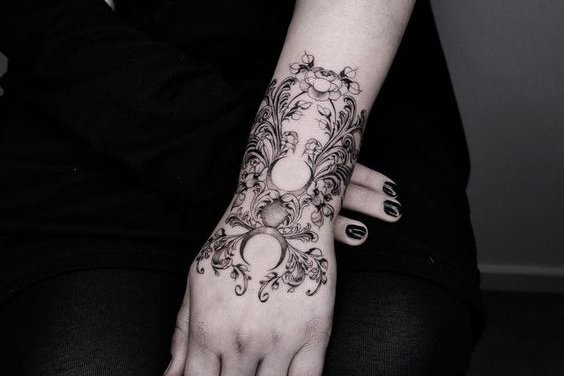
Symbolism and
Popular Elements
- Ornaments and Patterns
- Baroque tattoos often feature intricate ornaments, including plant motifs, elaborate lines, and geometric shapes. These elements emphasize the luxury and sophistication characteristic of the Baroque era.
- Religious and Mythological Themes
- Baroque was closely associated with religious art, so tattoos often depict images of angels, saints, and mythological characters. These images are not only decorative but also filled with deep symbolism, reflecting a yearning for spirituality and elevation.
- Architectural Elements
- Another hallmark of Baroque tattoos is the use of architectural elements such as columns, arches, and decorative façade details. These features lend the tattoo a monumental quality and a sense of timelessness.
- Flora and Fauna
- Baroque tattoos frequently include various flowers, leaves, birds, and animals. These elements symbolize fertility, prosperity, and natural beauty, highlighting the connection between humans and nature.
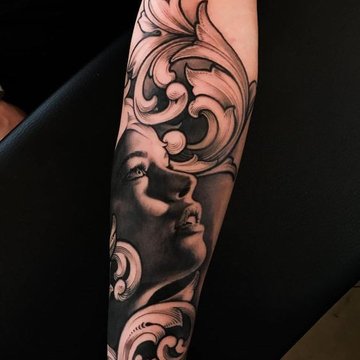
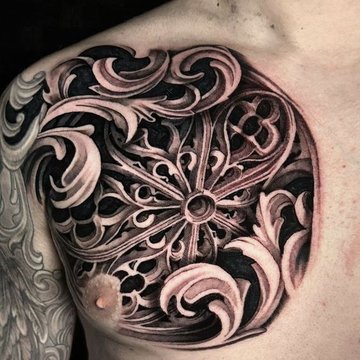
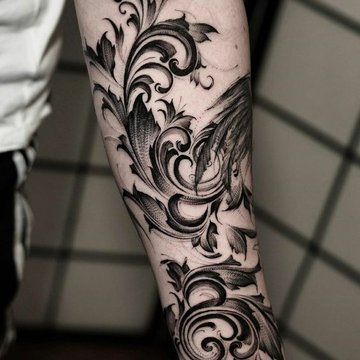
Technique and
Color Choices
Baroque-style tattoos demand a high level of skill from the artist, as they include numerous fine details and complex elements.
Typically, these tattoos are executed in a black-and-white palette, which better conveys the play of light and shadow characteristic of Baroque art. However, the use of gold and rich colors such as red, blue, and green is also common, especially when the artist wishes to highlight elements of luxury and wealth.
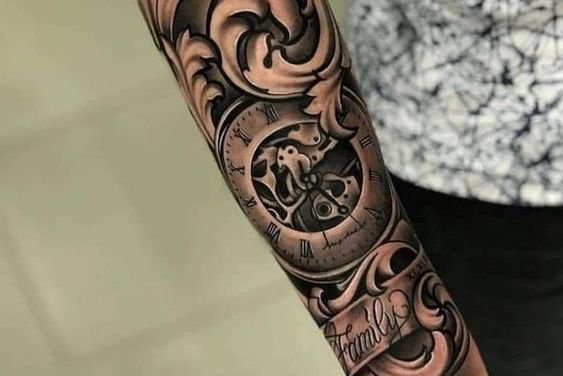
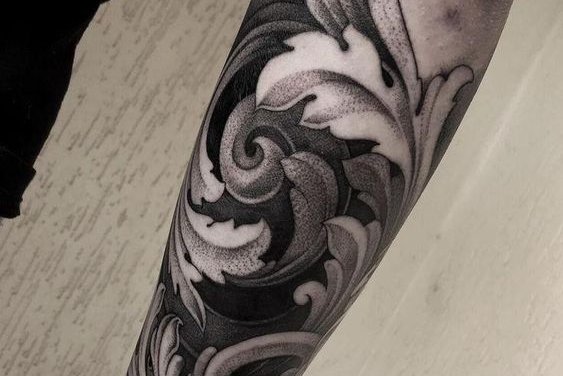
Modern Interpretations
of the Style in Tattoos
Today, Baroque-style tattoos remain popular among those who appreciate refined art and seek to express their individuality through intricate and aesthetically rich body art.
Modern artists often combine Baroque elements with other styles, such as realism or neo-traditional, creating unique compositions that merge historical heritage with contemporary trends.
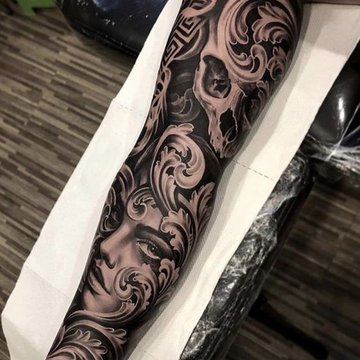
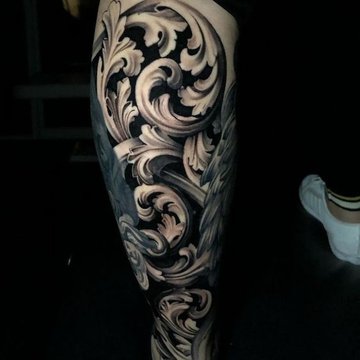
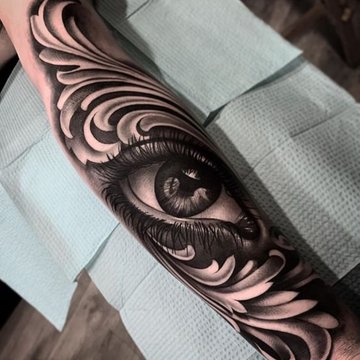
Popular Placement
for Baroque Tattoos
Baroque tattoos look best on large areas of the body, such as the back, chest, thighs, or shoulders, where the complexity and multilayered nature of the design can be fully displayed.
Miniature versions of Baroque tattoos can also look striking, for example, on the wrist, neck, or shoulder blade, but they require the artist to pay particular attention to detail.
Baroque-style tattoos are more than just body decoration. They express admiration for history and art, a pursuit of aesthetic perfection, and a desire to wear a piece of art on the body that combines luxury, drama, and elegance. If you are looking for a tattoo that will impress with its beauty and complexity, Baroque is the perfect choice. By turning to professional artists at VEAN TATTOO, you can bring your boldest ideas to life and create a tattoo that will become a true masterpiece.


 Create a sketch in the VEAN TATTOO AI generator
Create a sketch in the VEAN TATTOO AI generator
